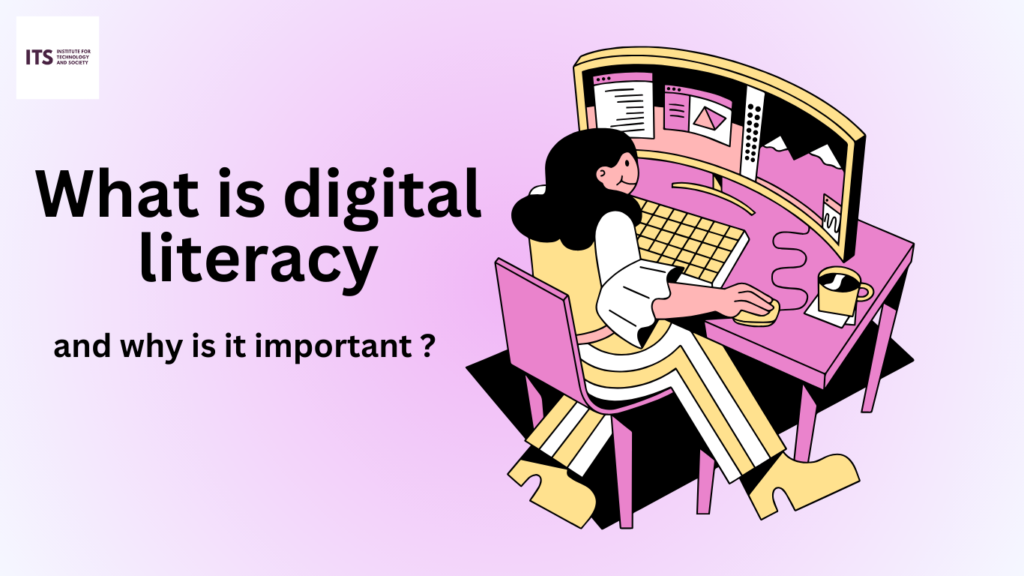What is Digital Literacy
and why it is important?
In today’s interconnected world, digital literacy has become a fundamental skill that empowers individuals to navigate, understand, and effectively utilize digital technologies. Digital literacy encompasses a range of competencies, from basic skills such as using computers and mobile devices to more advanced abilities like critically evaluating online information and protecting personal data.
Why Digital Literacy Matters?
Access to Information: Digital literacy enables individuals to access a wealth of information available online, empowering them to stay informed and make well-informed decisions.
Education and Employment Opportunities: Many educational and job opportunities require digital skills. Digital literacy enhances employability and enables lifelong learning in an increasingly digital-centric workforce.
Critical Thinking and Evaluation: In a digital landscape filled with misinformation, digital literacy helps individuals critically evaluate online content, distinguish between reliable and unreliable sources, and combat fake news.
Safety and Security: Understanding digital risks and knowing how to protect personal information online is crucial in safeguarding against cyber threats such as phishing, identity theft, and malware.
Strategies for Improving Digital Skills
Basic Digital Skills: Start with foundational skills like using operating systems (Windows, macOS), navigating the internet, and using common software applications (Microsoft Office, Google Workspace).
Online Courses and Tutorials: Take advantage of free or low-cost online courses and tutorials on platforms to learn specific digital skills such as coding, digital marketing, or data analysis.
Digital Literacy Programs: Many organizations offer workshops and programs focused on improving digital literacy. Check local libraries, community centers, and educational institutions for workshops on topics like internet safety, social media usage, and online research skills.
Practice Safe Online Behavior: Educate yourself on best practices for online safety, such as creating strong passwords, recognizing phishing attempts, and setting privacy settings on social media accounts.
Stay Informed: Follow reputable sources for updates on digital trends, cybersecurity threats, and new technologies to stay ahead in the digital landscape.
What are some resources that help you enhance your digital literacy skills?
Improving digital literacy empowers individuals to navigate the digital landscape confidently, seizing opportunities and managing challenges effectively. Resources like Google Digital Garage offer free courses on digital marketing, data, and career development. Microsoft’s Digital Literacy Curriculum covers basics such as computer skills, internet safety, and productivity tools. Digital Learn provides interactive tutorials across various digital literacy topics, while CISA offers cybersecurity resources. Additionally, the Digital Literacy Alliance fosters global initiatives to promote digital literacy. In today’s information-driven society, mastering digital literacy is crucial for personal growth, academic success, and professional advancement.
By enhancing digital literacy, individuals can confidently navigate the digital world, harness its opportunities, and mitigate its challenges effectively. Whether for personal enrichment, academic pursuits, or professional advancement, digital literacy is an invaluable skill in today’s information-driven society.

